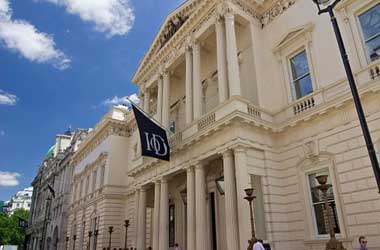 A recent survey has indicated that British business leaders are putting on hold hiring and investment decisions, in line with the predications made prior to the referendum. Around 1,000 business leaders were surveyed by the Institute of Directors (IoD) in the immediate aftermath of the result from the Brexit referendum. The polled leaders said that the Brexit result was likely to be negative for them. While a third of the leaders said that they would continue to hire at the same pace as before, around 25 percent said that they would halt recruitment. Around a third also said that they would reduce their investment plans
A recent survey has indicated that British business leaders are putting on hold hiring and investment decisions, in line with the predications made prior to the referendum. Around 1,000 business leaders were surveyed by the Institute of Directors (IoD) in the immediate aftermath of the result from the Brexit referendum. The polled leaders said that the Brexit result was likely to be negative for them. While a third of the leaders said that they would continue to hire at the same pace as before, around 25 percent said that they would halt recruitment. Around a third also said that they would reduce their investment plans
Simon Walker, the IoD’s director-general said that the survey showed that the institute’s members were clearly anxious of the impact. Economists are in the process of reworking growth estimates to reflect the economic impact of Brexit on UK’s economy. Many of them predict that UK will slip in to a recession.
Financial Times
Although the fallout of Britain leaving the EU is likely to be as far-reaching as that of the 2008 financial crisis, experts say Britain is better placed today to handle shocks. Mark Carney, Bank of England (BoE) governor has said that the British banking companies were in better situation today to continue lending to businesses and consumers.
In case a lending freeze results, the BoE would roll out schemes such as the ‘Funding for Lending’ scheme to boost lending. The depreciation of the sterling is likely to help those earning in foreign currencies and those exporting. But despite these bright spots, there are number of downsides foreseen for the UK.
The declining value of the pound sterling is likely to increase the cost of imported goods and reduce buying power. If unemployment increases, household income and spending will be affected. This will trigger a slowdown in demand for consumer goods, retail purchases, travel and other related spends. Housing purchases are likely to be postponed which would depress the market.
Several market observers expect the BoE to cut interest rates in order to support investments and consumer spending given the current volatile and uncertain scenario. An interest rate cut of 25 basis points is expected to be announced in August. Experts however highlight that the most critical factor is political stability. Britain’s governing party and the opposition are both in turmoil following the surprise result. A lack of political leadership is likely to significantly hamper decision-making.
The IoD survey results has emphasized that business leaders are expecting two things in the near term from the British government. The first is a stabilized economy and the second is a new trade agreement with the EU.




